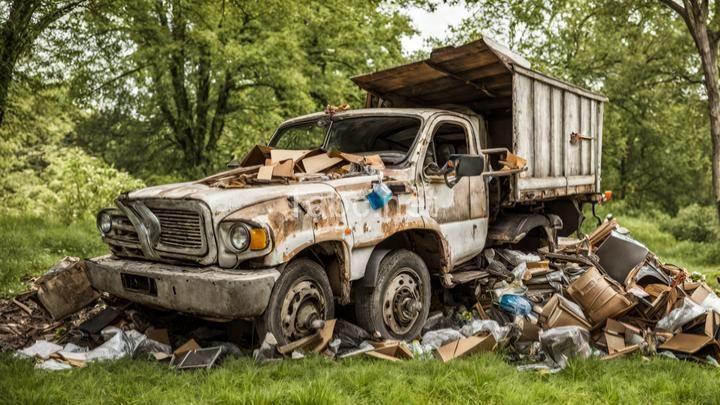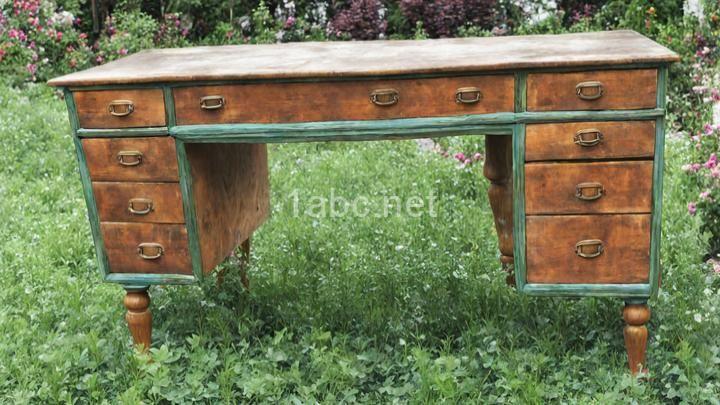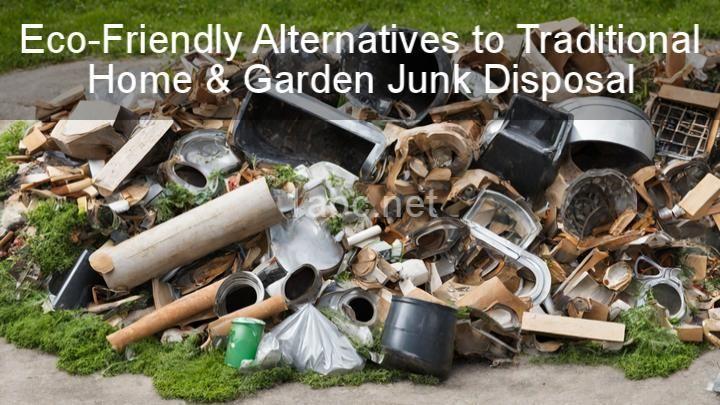Transforming Your Garden with Efficient Waste Disposal Strategies

Introduction:
Welcome to our blog on transforming your garden with efficient waste disposal strategies! In this article, we will explore some practical tips and techniques to help you manage and dispose of garden waste effectively. Whether you are an experienced gardener or just starting out, these strategies will not only save you time but also contribute to a healthier environment.
I. Understanding the Importance of Proper Waste Disposal
Proper waste disposal is essential for maintaining a sustainable garden and protecting the environment. Improper waste disposal can have negative impacts on the ecosystem, including soil contamination, water pollution, and the release of harmful greenhouse gases. By disposing of garden waste in an efficient and responsible manner, you can minimize these risks and contribute to a cleaner and healthier planet.
One of the most effective ways to manage garden waste is through recycling and reusing. Rather than sending your waste to the landfill, you can repurpose it to benefit your garden ecosystem. By doing so, you not only reduce waste but also create a valuable resource for your plants.
II. Composting: Turning Waste into Nutrient-Rich Soil
Composting is a natural process that transforms organic waste into nutrient-rich soil. It is a simple and cost-effective way to dispose of garden waste while also enriching your soil. To start composting, you will need a compost bin or pile in a suitable location in your garden.
Here's a step-by-step guide to setting up a compost bin or pile:
-
Choose a location: Find a spot in your garden that is convenient for you to access and has good drainage.
-
Gather organic materials: Collect a variety of organic materials such as fruit and vegetable scraps, coffee grounds, eggshells, grass clippings, and dry leaves.
-
Layer the materials: Alternate between green (nitrogen-rich) and brown (carbon-rich) materials to create a balanced compost pile. Aim for a ratio of 3 parts brown to 1 part green.
-
Maintain moisture and aeration: Keep your compost pile moist but not wet. Turn it regularly to provide oxygen for the decomposition process.
-
Wait for the magic to happen: Over time, the organic materials will break down into rich, dark compost that can be used to nourish your plants.
Composting not only helps reduce waste but also improves soil fertility, promotes beneficial microorganisms, and enhances water retention in your garden.
III. Mulching: Maximizing the Benefits of Organic Materials
Mulching is another excellent way to manage garden waste and maximize its benefits. By spreading a layer of organic material over the soil surface, you can retain moisture, control weeds, and improve soil quality.
Here are some key points to consider when it comes to mulching:
-
Types of mulch materials: There are various types of mulch materials available, including wood chips, straw, grass clippings, and shredded leaves. Each type has its own benefits and uses, so choose the one that suits your garden's needs.
-
Applying mulch effectively: Apply a layer of mulch around your plants, leaving a small space around the stem or trunk to prevent rotting. Make sure the mulch layer is thick enough to provide adequate insulation and weed suppression.
-
Mulching tips: Avoid piling mulch against the plant stems, as this can create a moist environment that promotes disease. Also, replenish the mulch layer as needed to maintain its effectiveness.
Mulching not only conserves water by reducing evaporation but also adds organic matter to the soil as it breaks down, improving its structure and fertility.
IV. Recycling Green Waste: Responsible Disposal Options
If you have a large amount of green waste that cannot be composted or used as mulch, consider recycling it through local recycling programs or facilities. Many communities have green waste recycling programs that accept yard trimmings, branches, and other organic materials.
To properly prepare green waste for recycling, follow these guidelines:
-
Sort and separate: Separate green waste from other types of waste, such as plastics or metal.
-
Cut and bundle: Cut larger branches into manageable sizes and bundle them securely with twine or wire.
-
Check local regulations: Research your local recycling facilities' guidelines to ensure you are following their requirements for drop-off or collection.
Recycling green waste not only diverts it from the landfill but also enables it to be transformed into valuable compost or mulch products. It's a win-win for both your garden and the environment!
V. Reusing Garden Waste: Creative DIY Projects
Repurposing garden waste is not only environmentally friendly but also allows you to unleash your creativity and add unique touches to your garden. Here are a few creative DIY ideas to inspire you:
-
Building raised beds from old pallets: Use discarded wooden pallets to construct raised beds for growing vegetables or flowers. This not only reduces waste but also adds a rustic charm to your garden.
-
Creating decorative planters from broken clay pots: Instead of throwing away broken clay pots, use them as decorative planters. Arrange the broken pieces in a creative way to add visual interest to your garden.
-
Designing natural borders or pathways: Use fallen branches, twigs, or stones to create natural borders or pathways in your garden. This not only adds a touch of natural beauty but also provides habitat for beneficial insects and wildlife.
Don't be afraid to get creative and experiment with repurposing garden waste. Share your DIY projects with us, and let's inspire each other!
Conclusion:
In conclusion, efficient waste disposal strategies play a crucial role in transforming your garden and contributing to a healthier environment. By composting, mulching, recycling green waste, and repurposing garden waste, you can reduce waste, improve soil fertility, conserve water, and add unique touches to your garden.
We hope this blog post has inspired you to transform your garden by adopting efficient waste disposal strategies. By taking small steps towards responsible waste management, you can make a big difference in creating a greener and healthier environment. Happy gardening!
FREQUENTLY ASKED QUESTIONS
What are efficient waste disposal strategies for transforming my garden?
When it comes to transforming your garden and efficiently disposing of waste, there are several strategies you can consider. Here are a few options to help you get started:
-
Composting: One of the most effective waste disposal strategies for your garden is composting. By creating a compost pile or using a compost bin, you can convert organic waste such as kitchen scraps, leaves, and grass clippings into nutrient-rich compost. This compost can then be used to enrich your soil and promote healthy plant growth.
-
Recycling: Another important waste disposal strategy is recycling. Make sure to separate materials like plastic pots, containers, and packaging from your garden waste and place them in your recycling bin. Recycling not only reduces landfill waste but also conserves valuable resources.
-
Mulching: Utilizing mulch in your garden is a great way to dispose of yard waste while also improving soil health. By shredding and spreading branches, leaves, and grass clippings as mulch, you can prevent weed growth, retain moisture, and provide nutrients to your plants.
-
Donating or sharing plants: Instead of disposing of unwanted plants or excess seedlings, consider donating them to a local community garden or sharing them with friends and neighbors. This way, you can reduce waste and contribute to a greener community.
-
Responsible disposal: For any non-recyclable or non-compostable waste, make sure to dispose of it responsibly. This may involve taking it to a designated waste disposal facility or following local regulations for proper disposal methods.
Remember, efficient waste disposal strategies not only benefit your garden but also contribute to a more sustainable environment. By implementing these strategies, you can transform your garden while minimizing waste and promoting a healthier ecosystem.
Why is it important to prioritize waste disposal in my garden?
It is crucial to prioritize waste disposal in your garden for several reasons. Firstly, proper waste disposal helps maintain the cleanliness and hygiene of your garden. By removing any organic or inorganic waste, you prevent the accumulation of debris that can attract pests and insects, which can harm your plants and compromise their health.Secondly, waste disposal plays a significant role in promoting a sustainable gardening practice. By composting organic waste, such as fruit peels, vegetable scraps, and garden trimmings, you can create nutrient-rich compost that can be used to enrich your soil and enhance plant growth. This reduces the need for synthetic fertilizers and promotes a more environmentally friendly approach to gardening.
Additionally, prioritizing waste disposal in your garden can also contribute to overall environmental conservation. When waste is improperly disposed of, it can end up in landfills, where it can release harmful greenhouse gases like methane. By composting organic waste and recycling appropriate materials, you can help reduce the amount of waste that ends up in landfills and minimize your carbon footprint.
In summary, prioritizing waste disposal in your garden is important for maintaining cleanliness, promoting sustainability, and contributing to environmental conservation. By adopting proper waste disposal practices, you can create a healthier and more vibrant garden while also making a positive impact on the planet. So, let's get rid of the waste and let your garden thrive!
How can I compost effectively in my garden?
Composting is a great way to recycle organic waste and enrich your garden soil. Here are some tips to compost effectively in your garden:
-
Choose the right location: Find a spot in your garden that is convenient but also allows for proper air circulation. Avoid placing your compost pile too close to your house or any sensitive plants.
-
Use the right container: You can choose between a compost bin or an open pile. A bin helps contain the compost and maintain its moisture levels, while an open pile allows for better aeration. Whichever option you choose, make sure it's large enough to hold your compost materials.
-
Add a mix of materials: For successful composting, you need a balance of brown and green materials. Brown materials include dry leaves, straw, and shredded paper, while green materials consist of kitchen scraps, grass clippings, and fresh plant trimmings. Aim for a ratio of roughly 3 parts brown to 1 part green.
-
Chop and mix: Chop or shred larger materials to speed up the decomposition process. It's also important to mix the materials regularly to ensure even breakdown and promote aeration.
-
Maintain moisture levels: Your compost pile should be moist, but not soaking wet. Water it occasionally, especially during dry periods, to keep the decomposition process going. If it becomes too wet, add more brown materials to balance it out.
-
Turn the pile: Every few weeks, use a pitchfork or garden shovel to turn the compost pile. This helps mix the materials, improves aeration, and speeds up decomposition. If using a bin, you can simply rotate it to achieve the same effect.
-
Be patient: Composting takes time, usually several months to a year, depending on the materials and conditions. Be patient and allow nature to do its work. You'll know your compost is ready when it looks dark, crumbly, and earthy, with no strong odors.
By following these tips, you can effectively compost in your garden and create nutrient-rich soil that will benefit your plants. Happy composting!
Are there any specific tools or equipment I need for efficient waste disposal?
When it comes to efficient waste disposal, there are a few specific tools and equipment that can make the process easier and more effective. Here are some of the essentials:
-
Trash cans or bins: Having designated containers for different types of waste can help with sorting and organizing. Consider using separate bins for recyclables, organic waste, and general trash.
-
Recycling bins: If you want to properly dispose of recyclable materials, having separate bins for items like plastic, glass, paper, and aluminum cans is essential. This makes it easier to sort and ensures that recyclables don't end up in the landfill.
-
Compost bin or composting system: If you have a garden or want to reduce food waste, having a compost bin or composting system is a great addition. This allows you to turn organic waste, such as fruit and vegetable scraps, into nutrient-rich compost for gardening.
-
Waste bags or liners: Using durable and eco-friendly waste bags or liners can prevent leaks and make it easier to transport waste to the disposal area. Look for options that are biodegradable or made from recycled materials.
-
Gloves and protective gear: Depending on the type of waste you're handling, it may be wise to have gloves and other protective gear, such as masks or goggles. This helps to ensure your safety and minimize the risk of exposure to harmful substances.
-
Cleaning supplies: Keeping your waste disposal area clean is important for hygiene and preventing odors. Having cleaning supplies like disinfectant sprays, wipes, and garbage bags can make the cleaning process easier and more efficient.
Remember, the specific tools and equipment you need may vary depending on your location, waste management regulations, and personal preferences. It's always a good idea to check with your local waste management authority for any specific requirements or recommendations.



